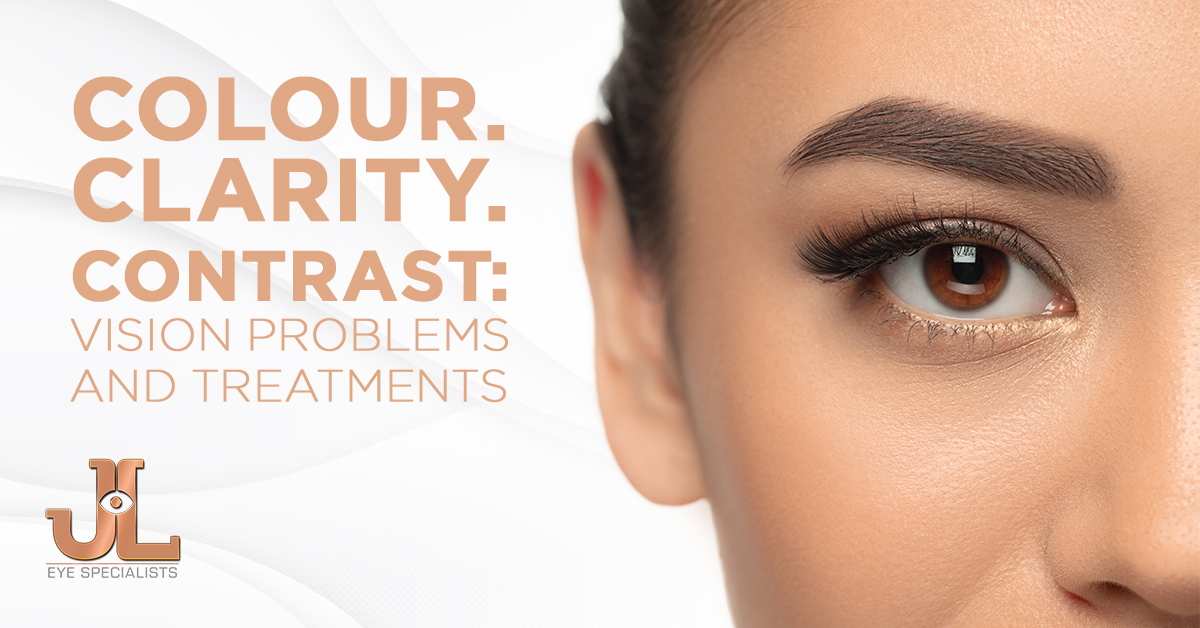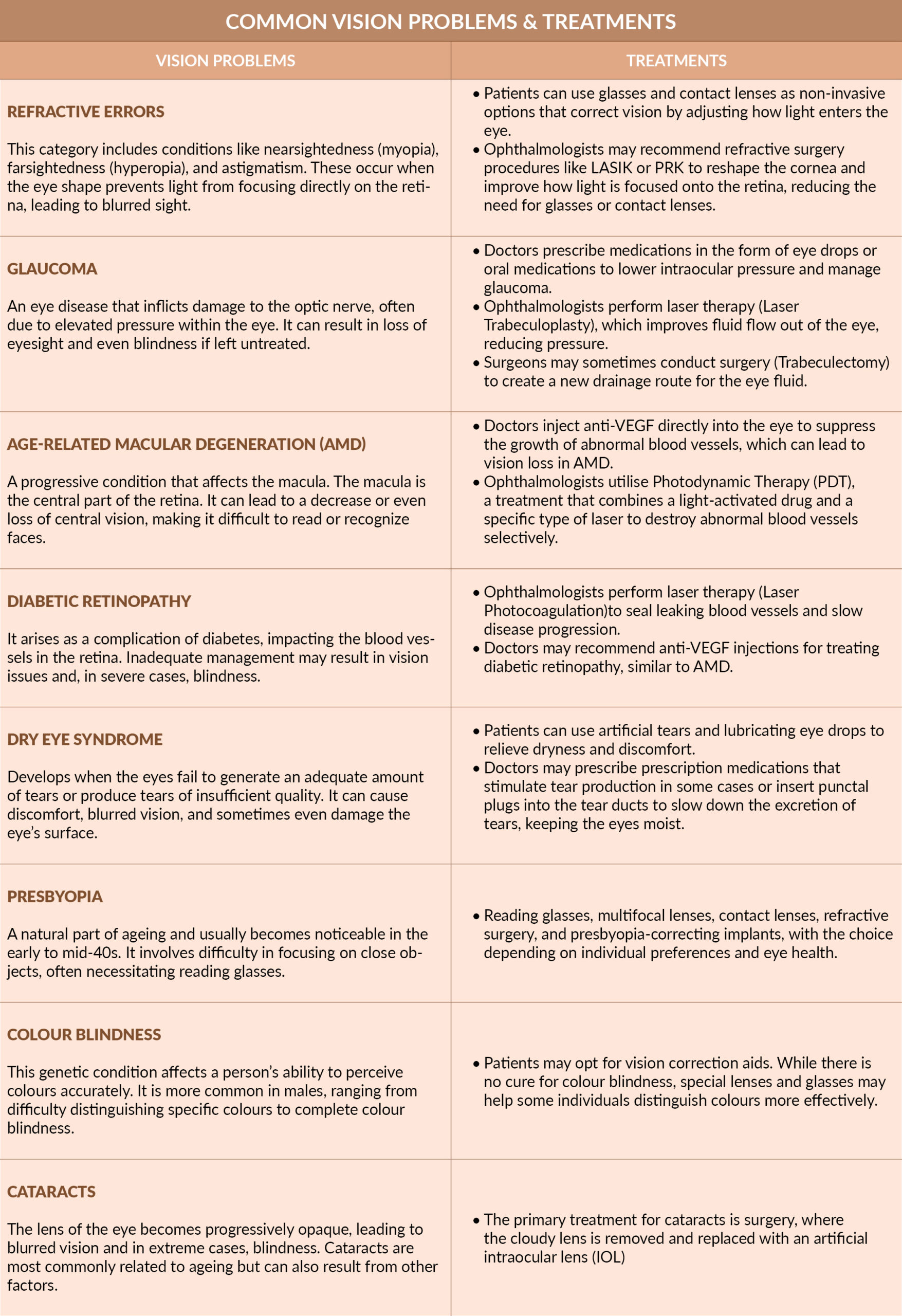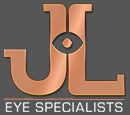COLOUR. CLARITY. CONTRAST: Vision Problems & Treatments

Colour, clarity, and contrast: these elements define our visual experience and play a pivotal role in how we perceive the world around us. Vision is a key element of our daily experiences, but sometimes, it falters. One prevalent vision problem are cataracts, which cause the opacity of the eye’s lens, leading to blurred vision and difficulty seeing clearly.
In Singapore, cataracts impact a significant portion of the senior population. The prevalence of cataracts escalates with age. Approximately 6 out of 10 people aged 60 to 64 are affected. Nearly 95% of individuals 75 years and above struggle with this eye condition.
In this blog, we’ll explore the complexities of cataracts and other vision problems, and modern treatments, like cataract surgery, that can restore clarity. Join us on this journey to understanding cataracts and the options available for restoring your vision.
Book a consultation with Dr Jimmy Lim today.
What Is Cataract?
Cataracts, a common eye condition particularly among the elderly, are characterised by the clouding of the eye’s natural lens. Cataracts develop gradually, making early detection challenging.
A common misconception leads most people to ask, do cataracts move like floaters? Cataracts and floaters are different conditions. Floaters are tiny clumps of gel or cells inside the vitreous, the clear gel-like fluid that fills the inside of your eye, and they can move within the eye, causing visible spots or threads. Cataracts, however, are stationary, affecting the lens of the eye. They do not move around but progressively cloud the lens, affecting vision more uniformly.
So how do you know if you have cataracts? The key symptoms include blurred vision, difficulty with night vision, sensitivity to light and glare, seeing halos around lights, and fading or yellowing of colours. These symptoms stem from the lens becoming cloudy and impairing vision. An optometrist or ophthalmologist can diagnose cataracts through a comprehensive eye examination, including visual acuity tests, dilated eye exams, and tonometry to measure intraocular pressure.
Are Cataracts Dangerous?
Cataracts in itself are not directly dangerous, but they can significantly impair vision. It is an impairment that can lead to a decreased quality of life and increased risk of accidents, such as falls. Moreover, severe cataracts can lead to other eye problems if left untreated, which brings us to the next point.
Can cataracts lead to glaucoma? In some cases, advanced cataracts can lead to secondary glaucoma. When a cataract becomes overly mature or swollen, it can cause fluid drainage problems in the eye, leading to increased intraocular pressure, a primary factor in glaucoma. Regular eye examinations are crucial for detecting such complications early.
Reversing Cataracts—is it possible?
Currently, there is no proven non-surgical method to reverse cataracts once a cataract has developed. The only effective treatment for cataract is cataract surgery. It is a medical procedure to remove the cloudy lens and replace it with an artificial one. This surgery is typically recommended when cataracts significantly interfere with daily activities. Research into eye drops or other treatments that might dissolve or reverse cataracts is ongoing, but as of now, surgery remains the standard treatment.
People ask, can you get cataracts again after surgery? After cataract surgery, the natural lens of the eye, which develops the cataract, is replaced with an artificial intraocular lens (IOL). This artificial lens does not develop cataracts. However, some patients may experience a condition called posterior capsule opacification (PCO), sometimes referred to as a secondary cataract. PCO occurs when the lens capsule – the part of the eye that holds the IOL in place – becomes cloudy. Fortunately, this can be easily treated with a quick, painless laser procedure.

.
.Types of Cataract Surgery
-
Phacoemulsification (Phaco Surgery)
Widely practised, this surgery involves a small corneal incision. Gentle suction removes the cataract fragments after ultrasonic vibrations break them apart. This minimally invasive technique promotes a faster recovery compared to older methods.
-
Extracapsular Cataract Extraction (ECCE)
Suitable for advanced cataracts, this procedure requires a larger incision to remove the entire cloudy lens core in one piece. Still, it often requires more healing time than newer, minimally invasive procedures like phacoemulsification.
-
Femtosecond Laser-Assisted Cataract Surgery
Employing a femtosecond laser, this technique ensures precise incisions and lens fragmentation.
.
Intraocular Lens (IOL) Options
Cataract surgery also involves selecting the right IOL. Options include mono-focal lenses for correcting one distance, typically distance vision, and multifocal lenses addressing both near and far vision.
Choosing the most suitable cataract surgery depends on factors like your overall health, specific cataract characteristics, and your surgeon’s expertise. Discussing with your eye care professional is crucial to determine the best approach for your case.

Cataract Surgery Recovery Time
The recovery time after cataract surgery can vary from person to person. Still, most people experience significant improvements in their vision within a few days to a few weeks after the surgery. Following your doctor’s instructions carefully is a prerequisite to a smooth and successful recovery.
Immediately after the surgery, you may experience some discomfort, mild pain, or itching, and your eye may be red and sensitive to light. Your doctor may provide eye drops or medications to manage pain or inflammation and prevent infection. You will also need to wear a protective eye shield for a few days to prevent accidental rubbing or pressure on the eye.
Nevertheless, blurred vision clears within 24 hours of surgery and up to two to three days. After a month, most people are completely healed as long as postoperative instructions are followed. Further, adhering to follow-up consultations is crucial for the doctor to evaluate your recovery progress. This will also pave the way to determine if there are complications. From there, routine eye check-ups are recommended to ensure your vision is clear, and no new cataract formation has occurred.
Learn More About: Cataract Diagnostics and Management at Our Clinic
Cataract Surgery Common Side Effects
- Blurry Vision: Blurriness immediately after surgery is normal and improves as the eye heals.
- Discomfort or Itching: Mild discomfort or itching may occur, but severe pain is uncommon. Prescribed eye drops help manage any irritation.
- Light Sensitivity: Increased sensitivity to light is normal temporarily. Wearing sunglasses can help.
- Tearing: Excessive tearing or watering of the eyes may occur but typically resolves as the eye heals.
- Inflammation: Expect some inflammation during the recovery process. Prescribed anti-inflammatory eye drops help manage this.
- Halos or Glare: Certain individuals might encounter temporary halos or glare around lights, particularly during nighttime.
- Serious Complications: While rare, serious complications can include infection, bleeding, or retinal detachment. Promptly report any severe pain, sudden vision changes, or other concerning symptoms to your eye care professional.
Remember to always follow your surgeon’s post-operative care instructions, attend follow-up appointments, and discuss any concerns or unusual symptoms with your eye care provider. Recovery experiences can vary, and your eye care professional is the best resource for personalised guidance based on your specific situation.
Cataract Surgery Clinic Singapore
There’s no other way to reverse or cure cataracts besides surgery. However, the doctor can suggest preventive measures to slow cataract progression in its early stage. However, if your vision is severely affected, surgery may be recommended. These treatments are standard for all types of cataracts unless contraindications exist.
At our clinic, we perform cataract removal procedures such as Phacoemulsification and Extracapsular cataract extraction for different severity of cataracts. We offer a variety of intraocular lenses to correct myopia (short-sightedness), hyperopia (farsightedness), astigmatism, and presbyopia (old-sightedness).
.
Cataract Surgery Clinic Singapore
Understanding cataracts and other common vision problems empowers individuals to seek timely and informed medical advice and intervention. Regular eye examinations are crucial for early detection and management of these conditions. Remember, maintaining good eye health is not just about addressing problems as they arise, but also about prevention and regular care.
At our clinic, we perform cataract removal procedures such as Phacoemulsification and Extracapsular cataract extraction for different severity of cataracts. We offer a variety of intraocular lenses to correct myopia (short-sightedness), hyperopia (farsightedness), astigmatism, and presbyopia (old-sightedness).
If you want to know more about how it works, please schedule a consultation with us today. Our medical director, Dr Jimmy Lim is a fellowship-trained cataract and refractive surgeon whose expertise also covers cornea, refractive (LASIK), and general ophthalmology.
Related Posts:
Relevant Services:
Relevant Services:
Our Doctor

DR. JIMMY LIM
Gleneagles Medical Centre
6 Napier Road #07-10,
Singapore 258499
Phone: +65 6258 8966
Fax: +65 6258 8766


